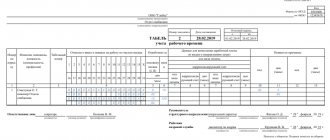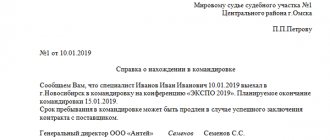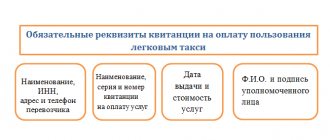Overtime work on a business trip
And if nothing is said about work within normal working hours, then where will work outside of it come from , i.e. overtime work.
It is no coincidence that Article 167 of the Labor Code, with the title “guarantees when sending workers on business trips,” guarantees the preservation of the place of work (position) and average earnings .
If a place of work (position) is preserved by law as a guarantee, this is not in vain. is absent somewhere . He is not at work. He is not busy performing the duties of his position. “Staggering” somewhere... It turns out he’s on a trip, i.e. business trip.
“average earnings” used in the article of the law indicates the presence of another “guarantee” - the provision of funds. The phrase “average earnings” is used only to indicate the size of the guarantee payment, and not at all the amount of money in the status of “ wages” .
Guaranteed payments and additional payments in the labor legislation of the Russian Federation and the average salary are not the same thing.
The purpose of guarantee payments and additional payments is to maintain the employee’s level of material security during the time when he did not perform labor duties and, therefore, could not earn money on his own, as well as in cases specifically specified in the law (during a business trip, during military training, in case of termination of the employment contract caused by technological or organizational changes in production - in the latter case, the guarantee payment is called severance pay).
Average salary is the amount of remuneration for work performed depending on the qualifications, complexity, quantity, quality and conditions of the work performed , i.e. for the performance of their labor duties in the profession (position) agreed upon in the employment contract. With a slight clarification, the average salary as the amount of remuneration for labor is calculated in a special way, from the wages actually
And the last word that is confusing in the definition of a business trip. This is a “ official ” assignment.
The word “official” is used by the legislator only to emphasize that this is not a personal, friendly request. If you try to find a connection between this word and a deeper legal meaning, the result will be disappointing.
“Official” is the fulfillment of official duties (Dictionary of the Russian Language by S.I. Ozhegov, p. 636). The use of the word “service” in Russian leads to service in its three types: state civil service, service in law enforcement agencies, military service.
In labor relations: in production, business and commerce, the word “official” has no legal meaning. It is used like this for a “cute word”. It is a foreign and inappropriate word here. Refer to the Law “On State Civil Service” No. 79-FZ. Here, “official” is a native word in every article!
As a result, the answer is clear: there can be no work or overtime on a business trip!
Another problem related to business travel.
Is a day off paid if an employee arrives from a business trip on Sunday at 8:15 am? morning. If you pay, how?
Judging by the information contained in the question, there is no reason to say that the employee specifically sent to work, that is, to perform his job duties on weekends , and therefore to talk about “whether the day off is paid”, according to the rule contained in Art. 153 TK, no need.
With the legal definition of a business trip specified in the law (this is a trip), the day of departure and the day of arrival cannot be removed from the register. The day of departure and arrival has a special legal status. The peculiarity is as follows: “in cases where, by order of the administration, an employee goes on a business trip on a day off, he is given another day of rest upon returning from the business trip.” This rule follows from Article 111 of the Labor Code of the Russian Federation, Sunday is a national day off.
What if he comes from a business trip on a day off!?
There is no direct answer to this question. There is no answer in Articles 166-168 of the Labor Code of the Russian Federation. nor in the Regulations on the specifics of sending on business trips” (Regulation of the Government of the Russian Federation. No. 749 of October 13, 2008). Neither in the Instruction “On official business trips...” dated March 18, 1988 No. 351.
At the same time, having studied these regulatory documents, you can see that “the issue of reporting to work on the day of arrival from a business trip is resolved by agreement with the administration.” From the question posed by the reader, it is not clear that there is an agreement to go to work upon arrival from a business trip, i.e. at 8 o'clock 15 minutes. Sunday is a day off! And if the employee did not go to work to perform job duties in his profession (position) - what should he pay for!?
In addition, from the clarification of the Instruction “On business trips ...” dated March 18, 1988 No. 351, it follows that on a business trip the employee has the right to use all-Russian weekends and holidays provided for in Articles 111, 112 of the Labor Code. and also that “in return for days of rest unused during a business trip, other days of rest upon return from a business trip are not provided.” Like this. Draw your conclusions!
The Labor Code limits, but nevertheless allows, the involvement of workers in work beyond the normal working hours. However, overtime hours, as well as night work, are subject to increased payment. But does this rule apply to an employee’s work on a business trip? After all, days of business travel are paid based on average earnings, and not on actual time worked.
The concept of overtime work is disclosed in Art. 99 Labor Code. This is understood as work performed by an employee on the initiative of the employer outside the working hours established for him: daily work (shift), and in the case of cumulative accounting of working hours - in excess of the normal number of working hours for the accounting period. According to Art. 152 of the Labor Code, the first two hours of overtime are subject to payment by the employer in no less than one and a half times the rate, and subsequent hours - in no less than double. A collective agreement, local regulation or employment contract may also determine higher rates of overtime pay. In any case, the number of possible overtime hours is limited by the Labor Code. Each employee is “allotted” 4 hours of overtime for two consecutive days and 120 hours per year. When recording daily working hours, the number of hours of overtime work is determined relative to the daily standard of working time. Hours worked outside of the shift (working day) will be considered overtime. And every day when processing took place, the first two and subsequent ones are allocated for payment purposes. In summary accounting, overtime is hours worked in excess of the standard number of working hours during the accounting period, which can be a month, quarter or year (Part 1 of Article 99 of the Labor Code). In this case, the division of overtime hours into the first two and subsequent ones is carried out once per accounting period (Letter of the Ministry of Health and Social Development of Russia dated August 31, 2009 N 22-2-3363).
Pay for work at night
According to Art. 154 of the Labor Code, payment for each hour of work at night must be made at an increased rate compared to work under normal conditions, that is, during the day. The specific amounts of the corresponding wage supplement are determined by a collective agreement, a local regulatory act adopted taking into account the opinion of the representative body of employees, or an employment contract. However, in any case, it cannot be lower than a certain limit, which is established by the Government taking into account the opinion of the tripartite commission for regulating social and labor relations. According to Decree of the Government of the Russian Federation of July 22, 2008 N 554, the minimum increase in wages for night work is 20 percent of the hourly tariff rate (salary (official salary) calculated per hour of work) for each hour of work at night. At the same time, in accordance with the Labor Code, night time is recognized as the time from 22.00 to 6.00.
Note! The Labor Code also provides for another option for compensating an employee for overtime work than their increased payment. At his request, he may be given additional rest time. It must be no less than the time worked overtime.
As a general rule, the duration of work (shift) at night is reduced by one hour without subsequent work and a reduction in wages.
In other words, the maximum working time for employees working night shifts during the week cannot exceed 35 hours, but it must be paid as a 40-hour week worked. However, it should be borne in mind that this rule does not apply everywhere. Thus, the duration of night work is not reduced for those employees who are already working under a “shortened program”. Likewise, this is not required if we are talking about workers who are initially hired specifically for night work, and are not involved in such work from time to time. In addition, the duration of work at night is equal to that of the daytime “colleague” in cases where this is necessary due to working conditions, as well as for shift work with a six-day work week with one day off.
Overtime and night work on business trips
In accordance with Art.
Business trip: overtime and weekends
166 of the Labor Code, a business trip is a trip by an employee by order of the employer for a certain period of time to carry out an official assignment outside the place of permanent work. In other words, while on a business trip, an employee performs his job duties, for which he must receive remuneration. Another thing is that, by virtue of Art. 167 of the Code, during the trip his average earnings are retained, and the time actually worked is not paid. However, as representatives of the Russian Ministry of Labor indicate in Letter No. 14-2-195 dated November 14, 2013, if during a business trip an employee is involved in overtime and night work, the organization not only can, but must compensate him for similar "inconvenience". Moreover, according to officials, in such situations, general payment rules apply. At the same time, based on the content of clause 9 of the Regulations on the specifics of sending employees on a business trip, we can conclude that the work and rest regime established by the employer is maintained for the posted employee (approved by Decree of the Government of the Russian Federation of October 13, 2008 N 749). In particular, in Letter No. 14-2/3044898-4415 dated September 5, 2013, representatives of the Russian Ministry of Labor confirmed that the average salary of a posted worker is paid for all working days provided for by the work schedule of the sending organization. Consequently, the standard working hours, the number of overtime hours and the duration of night work for employees sent on a business trip should be determined in the same way as for other employees.
Example 1. From December 1 to December 31, 2013, the employee is on a business trip. His monthly salary is 15,000 rubles. The average daily salary of an employee is calculated at 510.20 rubles. The company has a 40-hour work week (5-day work week of 8 hours). The employee worked in full in December, namely 22 working days, which is 175 hours. He was involved in overtime work on a business trip three times: 1st day - 1 hour; 2nd day - 3 hours; 3rd day - 4 hours. 1. Determine the hourly rate: 15,000 rubles. : 175 = 85.71 rub. 2. We determine the amount of additional payment for each day: 1st day: (85.23 rubles x 1.5) = 128.57 rubles; 2nd day: (85.23 rubles x 1.5 x 2) + (85.23 rubles x 2 x 1) = 428.56 rubles; 3rd day: (85.23 rub. x 1.5 x 2) + (85.23 rub. x 2 x 2) = 599.98 rub. The additional payment for overtime work for December will be: 128.57 + 428.56 + 599.98 = 1157.11 rubles. 3. Average earnings during a business trip are: 510.20 rubles. x 22 days = 11,224.40 rub.
Example 2. Let's use the conditions of example 1, but assume that the employee has a summarized recording of working time. The accounting period is a month. The average hourly earnings of an employee are calculated at 91.74 rubles. The standard working time for December is 175 hours. During the accounting period, the employee was on sick leave for 3 days, and therefore 1 shift, or 10 hours, was not worked. Accordingly, the employee’s standard working time will be 165 hours. According to the schedule, the employee had to work 18 shifts of 10 hours (180 hours). In total, during the accounting period the employee worked: 180 hours - 10 hours = 170 hours. Thus, overtime hours worked in the accounting period: 170 hours - 165 hours = 5 hours. The additional payment for overtime work for December will be: (RUB 85.71 x 1.5 x 2) + (RUB 85.71 x 2 x 3) = RUB 771.40 Average earnings during a business trip are: 91.74 rubles. x 165 hours = 15,137.10 rub.
Example 3. Let’s use the conditions of example 1, but assume that within the normal working hours worked by the employee in full, the employee on a business trip for 4 hours was also involved in night work. The additional payment for such work will be: 85.71 x 20% x 4 hours = 68.59 rubles. Average earnings during a business trip are: 510.20 rubles. x 22 days = 11,224.40 rub.
If you do not find the information you need on this page, try using the site search:
That's what the law says
Here it is important to understand the definition of a business trip and what share of it is the performance of functional duties. A workplace is recognized only where an employee of an enterprise is required to be when performing his duties (Part 6 of Article 209 of the Labor Code of the Russian Federation). In essence, a business trip is a trip by an employee of an organization by order of the manager for a certain period of time in order to perform a specific official task not at his assigned workplace. More details in Part 1 of Art. 166 of the Labor Code of the Russian Federation, which provides for mandatory payment of overtime on business trips, and internal corporate conditions regarding this point are specified in the company’s internal documents.









